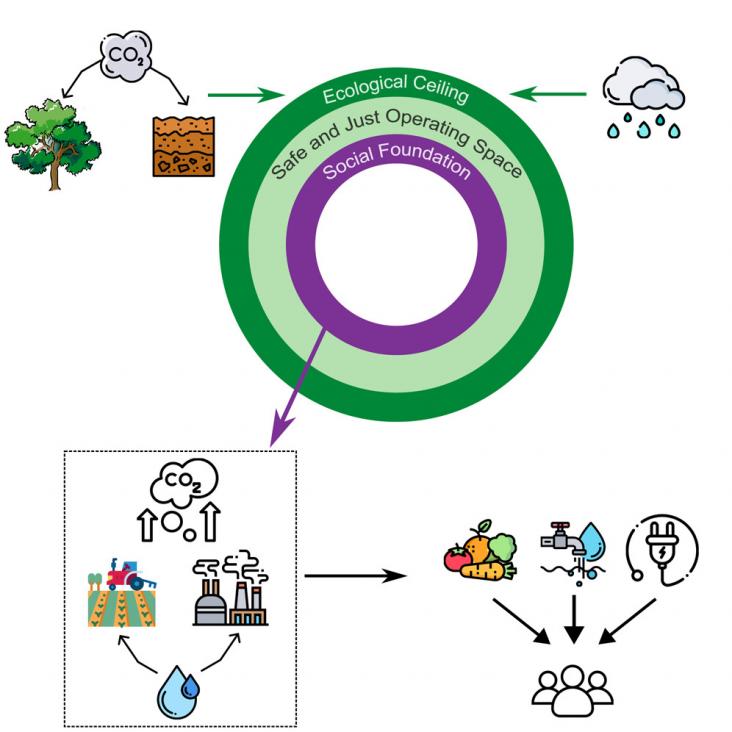This chapter aligns with Goal 6: Clean water and sanitation and Goal 14: Life below water by encompassing an overview of various biological methods for removing microplastics from water.
This chapter aligns with Goal 14: Life Below Water and Goal 6: Clean Water and Sanitation by describing advancements in the use of melt electrospun nanofibers for use in marine oil spill cleanup.
This review will spur more investigations on microplastic ingestion in historical specimens to establish reference points and determine temporal trends for microplastic pollution of the environment.
Drinking water and sanitation services in high-income countries typically bring widespread health and other benefits to their populations.
Possible but rare: Safe and just satisfaction of national human needs in terms of ecosystem services
One Earth, Volume 6, 21 April 2023

The authors investigate a countries ability to provide adequate food, energy, and water, without exceeding nature's carrying capacity. They show that 67% of nations are operating within a safe space for water provision.
This study is a long-term monitoring study in which inter-seasonal relations are established. Thus, the spread of MP pollution in the region during the year was provided by an important bio-indicator.
Instresting paper on Mediterranean river microplastic pollution
This study provides significant information on the occurrence and composition of MPs in the Tampico beach, in addition, we compared the abundance of MPs of this study with similar studies from different parts of the world.
This Article supports SDG 3s and 6 by presenting global comprehensive estimates of deaths associated with 33 bacterial pathogens across 11 major infectious syndromes, many of which could be prevented by improved access to safe drinking water and sanitation facilities.
It discussed the fountain scheduling strategies for improving water-use efficiency
